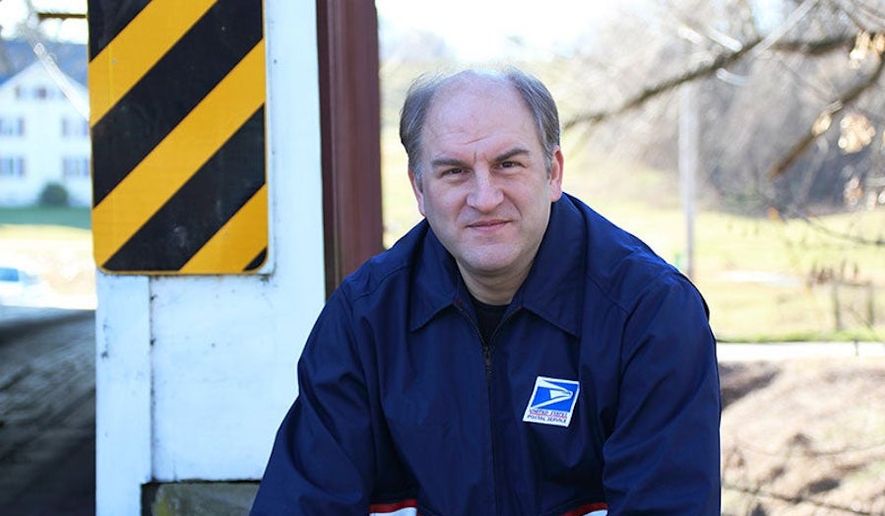A former letter carrier for the United States Postal Service asked the Supreme Court Tuesday to declare he must not have to choose between worshiping God on Sunday and earning a paycheck.
Should the high court rule in favor of Gerald Groff, who quit rather than work on Sunday, the decision would reverse a 46-year-old decision saying employers could be required to provide accommodations only so long as no “undue hardship” was placed on that employer.
Mr. Groff went to work for the USPS in 2012 but left seven years later after the quasi-governmental corporation began requiring him to work Sundays delivering packages for Amazon, and the USPS failed to accommodate his request not to work on that day. He said the Fourth Commandment found in Exodus 20:8 — “Remember the Sabbath day, to keep it holy” — would not let him work Sundays.
The carrier claims he endured “harsh treatment” for his religious beliefs, suffering “two years of progressive discipline, hostile working conditions” and uncertainty over whether he would be terminated any day he showed up for work. He resigned in January 2019 but subsequently sued to get his job back and accommodation for his beliefs.
A federal district court and later the 3rd Circuit Court of Appeals each ruled in favor of USPS, saying that arranging work schedules to accommodate Mr. Groff’s desired time off would place that “undue hardship” on the postal agency. The appeals panel also said accommodation would not be required if it would “harm employee morale.”
The Supreme Court, which spurned other appeals related to religious accommodation in employment in recent years, said it would take the Groff case to determine if he has backing under Title VII of the Civil Rights Act of 1964, which prohibits employment discrimination due to religion, including “all aspects of religious observance and practice” unless that “undue hardship” is created by accommodating the worker.
Mr. Groff’s attorneys claim the court’s 1977 decision in Trans World Airlines v. Hardison “gutted Title VII’s vital protections.”
The court is scheduled to hear oral arguments in the case April 18.
Attorney Alan J. Reinach of the Church State Council in Westlake Village, California, told The Washington Times the court “has a historic opportunity to do justice for American workers who don’t want to leave their religion at home when they go to work. The number one religious freedom problem facing Americans today is choosing between their religion and their job.”
Mr. Reinach said there had been “a significant increase” in religious accommodation complaints filed with the federal Equal Employment Opportunity Commission “in the last 20 years, but of course there are many, many people who never complain” and instead find other jobs.
Central to the case, he said, is just what constitutes “undue hardship” for an employer.
“Under the facts of this case, really requiring other workers to do marginally more work because someone needs time off for religious observances — if that’s an undue obligation to accommodate it that would negate the entire legal scheme. If an employer can claim hardship because of the impact on co-workers covering an absence, there’s nothing left of the legal duty to accommodate,” Mr. Reinach said.
In a statement, Kelly J. Shackelford, First Liberty Institute’s CEO, said, “Our nation has a long history of protecting its employees from being treated unfairly at work just because of their faith. This is an important case for all Americans.”
And Randall Wenger, chief counsel at Independence Law Center, said, “No employee should be forced to choose between their faith and their job. Religious accommodations should be treated in the same way we accommodate the workplace needs of any employee.”
• Mark A. Kellner can be reached at mkellner@washingtontimes.com.




Please read our comment policy before commenting.